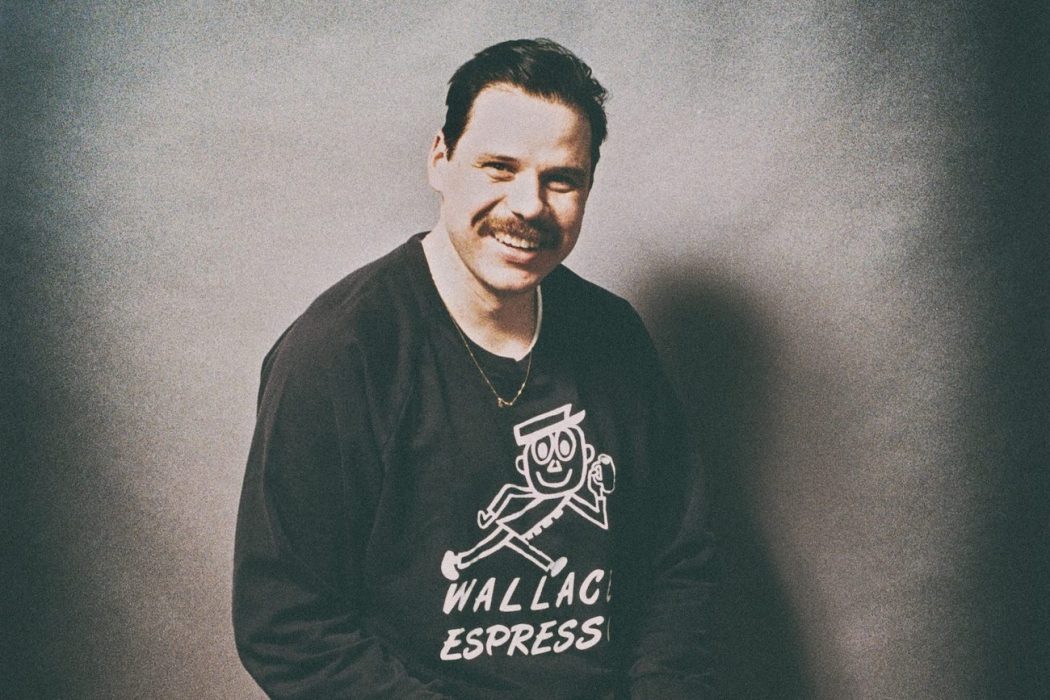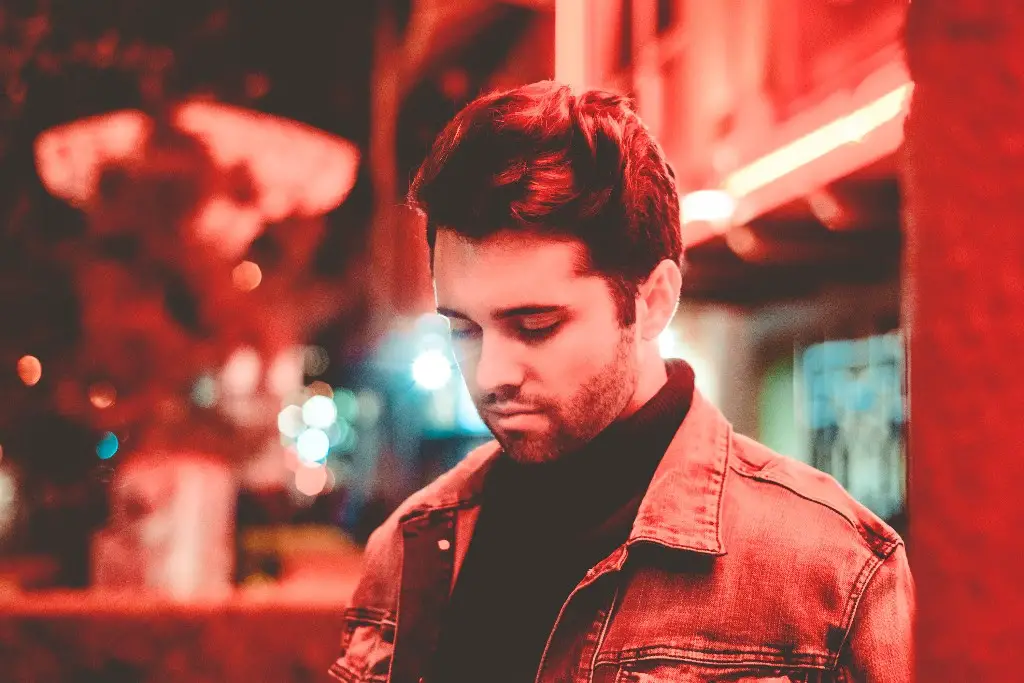Canadian singer/songwriter Bahamas embraces simplicity on his latest album ‘Sad Hunk’, an ode to blues tradition that’s as peppy as it is bracingly deep.
Stream: “Own Alone” – Bahamas
If we focus a little bit more on ourselves and in our house and our family, in our communities, in our cities, we can make the world just a little better.
My phone is trying to kill me.
The device I keep glued to my hand like an extra limb, or maybe a tumor, has made my life easier in a thousand ways, and crippled me in ten thousand others. Tech addiction is a fact of life in the 21st century, so much so that many of us don’t even notice it. I can look up from my desk and see nearly every head in the office buried in the latest whatever on their handheld screens. And coming off a year primarily spent indoors, that addiction has only worsened. Technology is our window to the world outside, bringing us the impression of togetherness even as we feel further isolated.
“The only way out of that is to completely unplug.”
The solution seems jarring, almost impossible in a society that would have looked incomprehensibly futuristic only twenty years ago. You might as well suggest chopping off everyone’s hand. But to Afie Jurvanen, better known to the world as Bahamas, it’s not as difficult as we make it out to be. “In the effort to make our lives easier, we’ve taken away so much,” he muses. “In one way, I’m awed by it. And in another, I think there’s something so rewarding about getting back to basics and learning to engage with your immediate world – learning some of those basic skills and doing them well, whether it’s cooking a meal for your family or writing a song.”
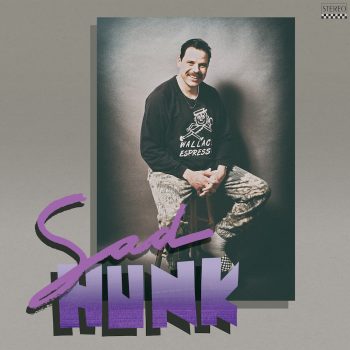
To be clear, he isn’t advocating that everyone should go live in the woods. But learning mindful presence and powering down the digital monster every once in a while can do wonders to shift one’s perspective. Social media can bring the global into our living rooms, but at the expense of our immediate surroundings. “I think people need to get local,” continues Jurvanen. “Maybe that’s a little bit naïve, but I do think we’ve spent a little too much time focused on what’s going on in the rest of the world. If we focus a little bit more on ourselves, in our house with our families, in our communities, in our cities, we can make the world just a little better.”
It’s all about getting back to the source, waking up to what’s always been there that we have shut out for so long. There’s a beauty in simplicity, a raw emotion visible without the obfuscation and pretense of the paper towns we build around us. We see that what is most real is what is in front of us and inside of us. With his latest album, Jurvanen does just that.
Sad Hunk is a folk album that sounds nothing like a folk album.
It is a masterclass in minimalism that relishes the space between notes as much as the sounds itself. It feels remarkably bare, not filling the room so much as it fills the mind. Staccato licks of guitar pierce holes in the silence like pricks of acupuncture, allowing light and energy to flow through it. Though at first it may seem light and breezy, the simplicity is by design. Like the blues legends of yesterday, Bahamas uses the music as a vessel to bleed his heart onto the airwaves.
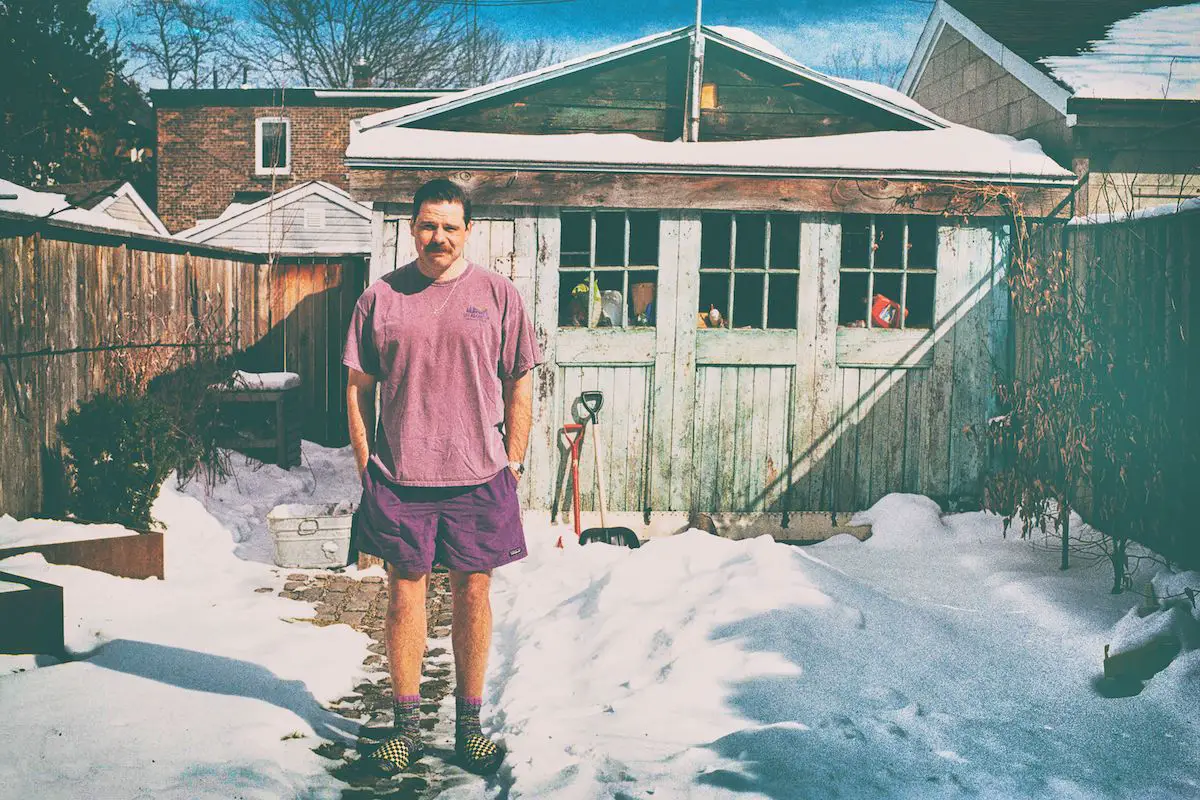
“A big reason why I like [old blues recordings] is that there’s virtually no production,” he elaborates. “It’s just a document of what’s happening.”
On album opener “Trick to Happy,” those traditions immediately shine through.
Is there some trick to being happy?
Most days I’m feeling like a half me
And feel that life is moving past me
I only told you ‘cause you asked me.
If you didn’t hear it yourself, you might be convinced these lyrics lived in a dusty Robert Johnson or BB King record. Sad Hunk functions in much the same way though. While shirking genre conventions, it taps into a well of raw vulnerability that made those early recordings so enduring. At its core, music is just truth rendered in melody. “That’s a big part of why people connect with music,” explains Jurvanen. “You hear someone sing a lyric and you don’t know them or what they’re thinking about ,but it immediately resonates with you. You can place yourself in the song as if you’re singing that lyric to whoever it is in your life that it relates to.”
Sad Hunk is full of these kinds of moments. “Up with the Jones” hides the exhaustion of modern burnout behind a spritely jolt of acoustic pop. “Not Cool Anymore” sees Bahamas kicking up dust on the cattle trail while lamenting that his peers have left him behind. And in perhaps the most vulnerable moment, “Wisdom of the World” turns the constant woe-is-me beatdown inward. He considers that maybe he is to blame for the hardship in his life, letting a lighthearted stomp-clap disintegrate into the album’s lone, wailing guitar solo as if finally losing his composure. But then the storm subsides into acceptance.
I guess the whole thing’s about forgiveness.
As difficult as it is to exhibit emotional honesty with others, it can be even harder to be honest with ourselves. And when we get there, it’s another journey altogether to accept our flaws without judgment.
Sad Hunk is all about living in that space, acknowledging that we are imperfect beings worthy of love all the same.
The title and album art themselves speak truth to this immediately. “It just seems like every time I get into a magazine or something, they always want to choose a photo that was like, this mysterious looking off into the distance thing,” he recalls. “I think, after a while I just wanted to embrace it.” Dressed in a sweatshirt and sweatpants, Jurvanen sits on a stool like a middle school portrait, grinning goofily at the camera. “It’s a pretty big juxtaposition to the word ‘hunk.’” And it’s the perfect visual metaphor for what Sad Hunk has to offer. Jurvanen bears himself to the listener without hiding behind the mysterious pretense that folk musicians often drape themselves in (or are dressed in by their publicists). “I think anybody that knows me or knows my music knows that there’s no part of me telling people how hunky I am,” he says, referencing his previous publicity photos. “That’s where the sad part comes in. I think it’s sort of this recognition of all of us being beautifully broken and messed up in our own ways.”
Throughout his career, Jurvanen has learned to approach himself and others with that kind of softness. “I do think that would make for a better place. You learn to disagree with people. You learn to listen to people. And the only way to do that is to be soft.” From one soft sad boy to another, it’s a mantra more powerful than all the Twitter yelling in the world could yield. Bahamas invites listeners to be soft, vulnerable, sad, and maybe just a little bit hunky.
I got a chance to sit down with Jurvanen recently to discuss Sad Hunk, the pitfalls of social media, and getting back to the source among other things. Check it all out below.
Sad Hunk is out now via Barchords Inc. / Brushfire Records.
Songs have been a vehicle for me to figure out things that I’m going through. Ideas that I have about myself, ideas I might have about the world.
— —
:: stream/purchase Sad Hunk here ::
Stream: ‘Sad Hunk’ – Bahamas
A CONVERSATION WITH BAHAMAS
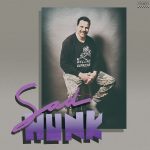
Atwood Magazine: I want to jump in immediately and talk about the album. The title is a pretty evocative one. Where did that come from?
Bahamas: About maybe 10 years ago, I was on the cover of a magazine. They did a photoshoot and all the pictures that they sent back were in shadow, and I was looking off into the distance, and I was brooding. I was like, “What the heck? Where’s all the pictures of me smiling? Where’s all the good pictures?”
And my wife walked by, as I was looking at the proofs and she said, “Who’s that hunk?” It kind of became a joke among us and our friends.
It kind of just seems like every time I get into a magazine or something, they always want to choose a photo that was like, this mysterious looking off into the distance thing. I think, after a while, I just wanted to embrace it. The album cover is a pretty big juxtaposition to the word “hunk.” I always wanted to be me smiling into the camera just sitting there in my sweatpants. I think now that I’ve been doing this a long time, I can sort of embrace that title and embrace the sort of humor that comes with it. And just lean into it a little bit.
Kind of like truth in irony, maybe?
Bahamas: I think anybody that knows me or knows my music knows that there’s no part of me telling people how hunky I am. Maybe that’s where the sad part comes in. I think it’s sort of this recognition of all of us being beautifully broken and messed up in our own ways. I certainly have my own burdens and my own flaws to deal with. And I’m sure everybody does.
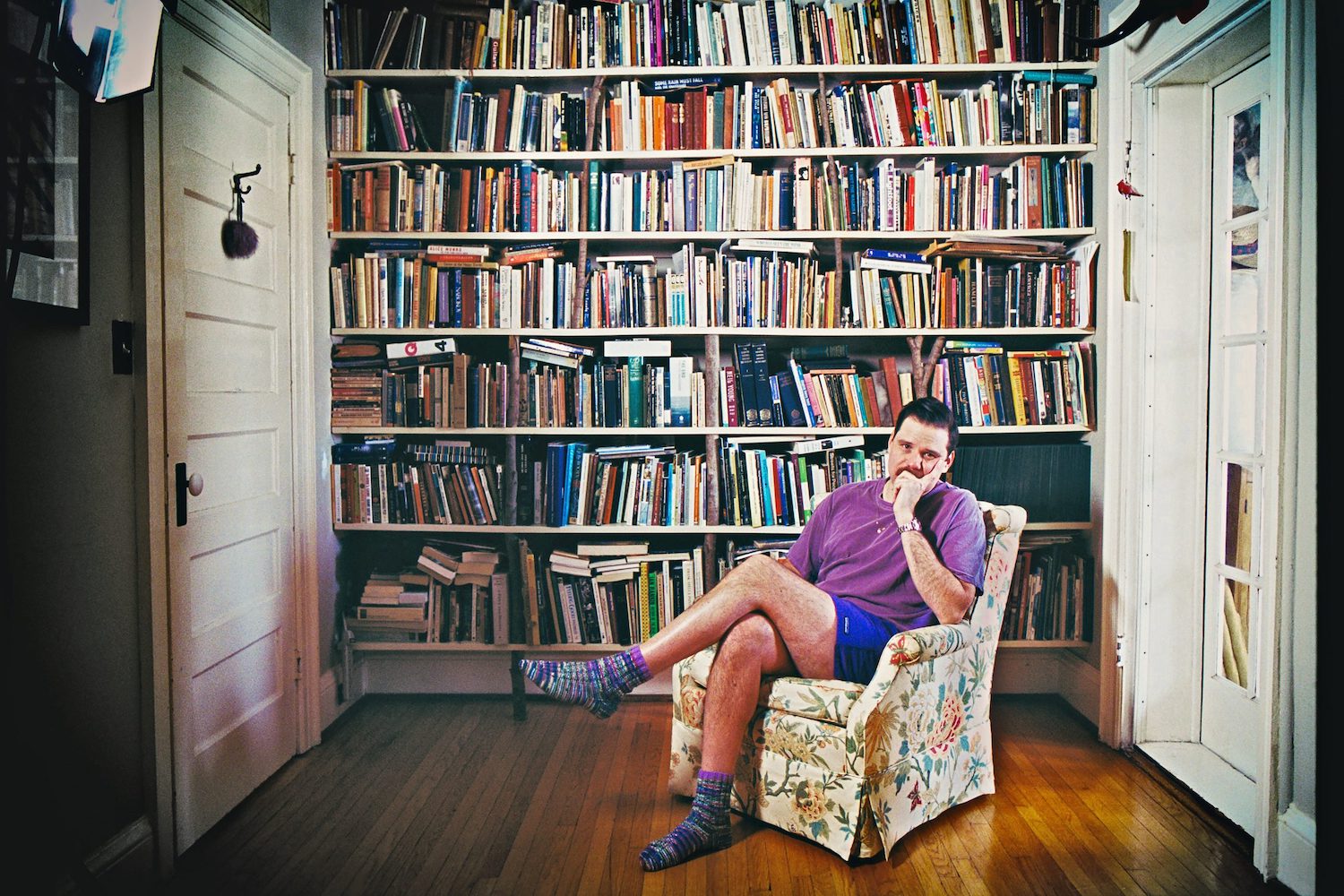
I'd like to kind of get a little heavy here for a sec. In the album opener “Trick to Be Happy,” you ask fittingly enough, “Is there a trick to being happy?” Is that a question that you find yourself grappling with?
Bahamas: It’s a question that a lot of people are grappling with. I think we’re in the age of excess. And the struggle for most people is to figure out, wait a second, I literally can have anything I want delivered next-day by Amazon. I can do whatever I want. So now the decision is truly upon me. The weight and responsibility is pretty big and I think a lot of people are sort of in that boat. I know I am.
Not that long ago you used to struggle to get enough food. And now we’re in this age where we have to get gym memberships, so that we can go waste calories on an exercise bike and stuff like that.
There’s part of the modernity that just doesn’t sit right with me and I’m obviously wrestling with that. I’ve recognized there are parts of the world where it hasn’t come this far, but living in Canada and living in the United States, it’s an embarrassment of riches. Coming to terms with that is sometimes difficult.
Your song “Own Alone” captures a different facet of that, like one reason to be so upset is because being on our phones all the time changes us on a cellular level. Do you think that there's any chance of us coming back from that, or is this just kind of like a fact of life now that we have to deal with?
Bahamas: I certainly like to think that most people have some agency left in their own lives and can make their own decisions. But it’s a heavy topic. I do think about it a lot. I have young kids. I’m thinking about it for myself, I’m thinking about it for them.
It would seem that we started as little microbes or little tadpoles, and then we evolved into monkeys or something, and then we figured out how to stand up straight, and then we figured out how to make fire, and then we figured out how to make all these incredible products and tools to make big buildings and big machines. Technology has been a part of our evolution for tens of thousands of years and my fear is that the technology is so smart and is able to learn at such a quick pace that we might actually lose control of it. If you do any reading about this stuff, you find out pretty quickly that people who are at the top of these big companies don’t even know how this stuff works. The algorithms are so sophisticated and computing power is increasing at such an incredibly high rate if you sat down and tried to figure out what’s actually happening they will have already reinvented themselves by the time you figured it out.
So the only way out of that is to completely unplug. And I’m not suggesting that everyone’s going to go live in the woods. But I think you see that you see that. I certainly see it in my community, people wanting to reconnect with basic skills, having a vegetable garden, learning how to sew, learning how to fix your own car, do your own oil changes. People want to engage with mechanical thing almost in reaction to the technology. In the effort to make our lives easier, we’ve taken away so much. In one way I’m awed by it. And in another, I think there’s something so rewarding about getting back to basics and learning to engage with your immediate world — learning some of those basic skills and doing them well, whether it’s cooking a meal for your family or writing a song.
“Old Town Road” came out of an app on an iPhone. The phones are writing the hit songs now. So I still enjoy being a musician and writing music. And it’s something that you can’t take for granted. You know, you got it, you got to do it. If you want to get better at it, you got to work at it every day.
Have you seen The Social Dilemma yet?
Bahamas: I did see that. It’s kind of hard to digest in one sitting. It’s scary. You realize how fractured society is. And I recognize it’s maybe different down in the States. But in Canada, we certainly have our own issues. And if the internet itself is eroding the very concept of truth, it’s hard to see a way out of that if we can’t even agree on what what’s true. So, I think I think people need to get local, as they say. Get to know your neighbors, talk with your family, just communicate with the people around you. And you’ll probably see that there are actually a lot of wonderful people in the world. Most people want good things for them and their community and their family. Maybe that’s a little bit naive, but I do think we’ve spent a little too much time focused on what’s going on in the rest of the world. And if we focus a little bit more on ourselves and in our house and our family, in our communities, in our cities, we can make the world just a little better.
You said that you were “trying to get closer and closer to the source, like the way that the old blues albums were made” with this record. Do you see your music is kind of mining personal truth in that way?
Bahamas: I think I’ve always tried to get to the point as quickly as possible, sort of get closer to the bone, as they say. That’s the type of music and the type of art that I gravitate towards, where there isn’t a whole lot of things obscuring the message.
Old blues recordings, or an old bluegrass or classical recordings, those are my kind of music. A big part of the reason I like it is that there’s virtually no production. It’s just a document of what’s happening. And you realize pretty quickly, what sets the good recordings apart from the great ones is just that emotional content. Are the players able to translate that into the microphones? They’re not adding any special effect. There’s no trickery or anything.
I want to make the best records I can. But at the core, I definitely keep that in mind. If things start to get a little bit too complex, I’d sooner start peeling back layers. It’s all about finding the quickest way to get the point across. I think that’s the main message for me.
Old blues recordings, or an old bluegrass or classical recordings, those are my kind of music.
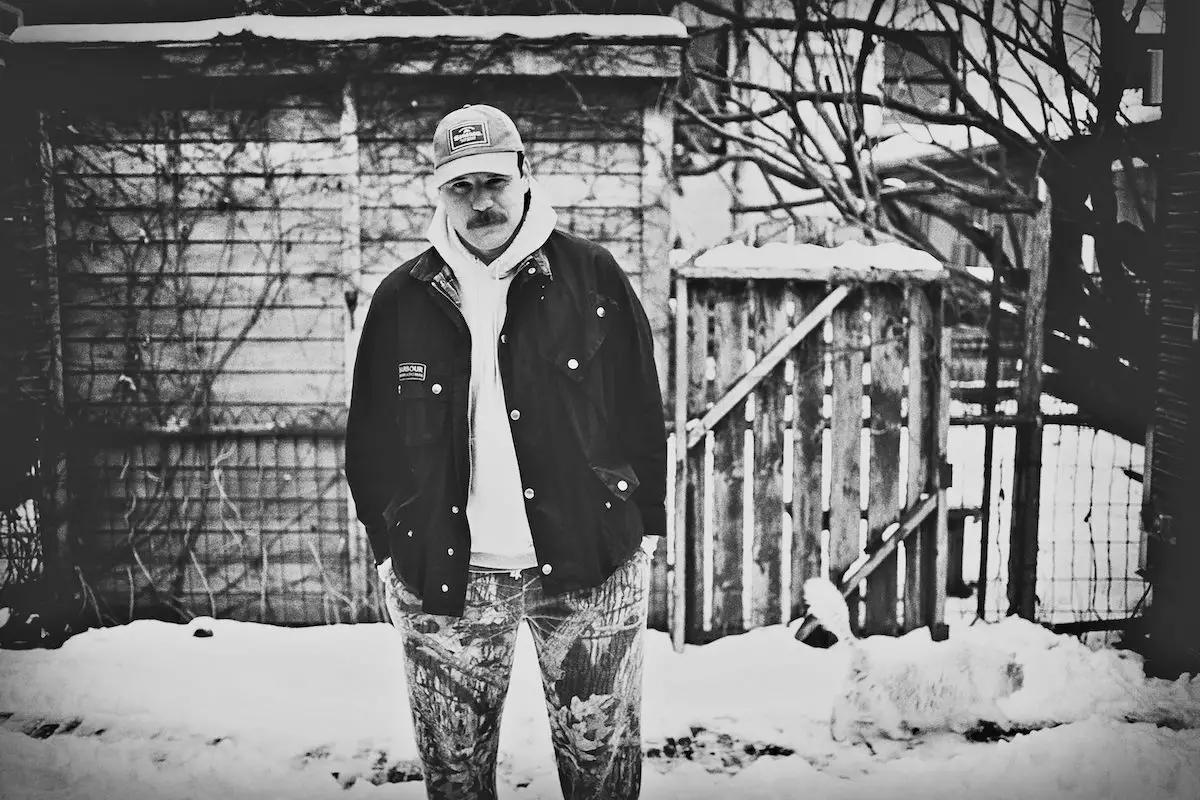
But how do you feel like you tell your story through your music?
Bahamas: Lyrics are a huge one for me. It’s not always clear what a song is about. Sometimes you have a cool idea for a song, and it takes time there to crack the code on it. And I think the same way I want the lyrics to be straightforward, I want the melodies and the hooks to be straightforward too. It’s not necessarily by design. That’s just what comes naturally to me.
The artists that I love the most and that I look t, for any sort of indirect inspiration have that quality about them. Guys like Neil Young, they’re able to just deliver the message. And I really respond to that. No one is going to say that Neil Young is the best singer in the world, but at the same time he’s capable of delivering his message loud and clear. You don’t have to struggle to hear what he’s singing about, or what he’s saying. I definitely keep that in mind and try to get that across in my own music.
There seems to be a distinct dichotomy between the upbeat nature of a lot of your songs and the gravity of a lot of the topics you tackle lyrically. Is that something that happens consciously for you?
Bahamas: Sometimes it’s conscious and I think it is something I’ve thought a lot about the past. I had this epiphany years ago with that Willie Nelson song “You’re Always on My Mind.” It’s such a beautiful song. The lyrics are so heartbreaking, but he’s got nothing but gratitude and acceptance in his voice. It’s a sad song that’s full of love. I realized, “Wait a second. Those are the songs I like the most, that have both of those things.” If you only have one, then it can still get stuck in your head like any pop song, but it’s not this transcendent thing. You’ve got to have both. You’ve got to have the sweet and salty. If you just have sweet, sugary pop music, you’ll listen to it and then you’re going to put it away. The music that really is timeless has both. So, I hope that my music has some of that.
You’ve said that it’s easier to express thoughts and emotions in song than it is in conversation. Why do you think that is?
Bahamas: I think in some ways, it’s just a sheer matter of time, right? I get to work on a song as long as I want. I can sit and craft these things until I’m happy with them, until they say something that speaks to me and speaks to other people. In a conversation, you can stumble over your words much like I’m doing right now. Things aren’t always as clear to you in the moment as you might want them to be. Or you might not have access to the language to speak to your emotions the way you want to.
Songs have been a vehicle for me to figure out things that I’m going through. Ideas that I have about myself, ideas I might have about the world. It sounds cheesy, but it’s a way to work shit out. Some people will go to the gym, some will go to the therapist, and for me, music does a lot of the same stuff.
Do you think there’s a way we can bring that naked vulnerability that we often pour into our art back into our personal relationships?
Bahamas: I think it’s all connected. That’s a big part of the reason why people connect with music. You hear Willie Nelson sing a lyric and you don’t know Willie Nelson, you don’t know who he’s thinking about. But it immediately resonates with you. You can place yourself in the song, as if you’re singing that lyric to whoever it is in your life that it relates to.
That is still the thing that amazes me the most. I can just write some words down and come up with a melody and sing that into a microphone, and then someone else could hear that and not only can they literally take the message from the lyrics, but they also get an emotional component to it that they’re actively participating in. You’re as the listener as the consumer, but it also becomes a part of you. It goes beyond just being an audience to it. That’s why you seek new records, to have that feeling.
I completely agree with that. So what do you hope that your listeners will get out of listening to Sad Hunk?
Bahamas: If someone asks “What type of music do you play?” I have a really hard time saying clearly what it is. I usually say rock and roll only because I don’t know what else to say. But I think the cool part about this record is that it literally sounds like its own thing. I mean, I like Neil Young and Willie Nelson, but I don’t think I sound like Neil Young.
I think guitar kind of fell out of fashion there for a while. Hip-hop and R&B are the dominant forms of pop music. And with the exception of John Mayer, there’s not too much guitar in that arena. And I really love the guitar. I named my first record after my guitar, obviously featured it and played it a lot. And I think there’s a lot of guitar playing on this record too that’s fresh, modern, and isn’t referential. It doesn’t sound like Jimmy Page, Jimi Hendrix, or John Mayer, anybody. It’s just its own thing. I certainly connect with it. And I hope other people do too.
I want to read another quote of yours. “Don’t let yourself be hard. Just be soft. Be as soft with each other as you possibly can.” What does it mean to be soft with one another?
Bahamas: I think it’s just about being patient. When I got married, one of my friends wrote this beautiful thing in a card for us that I’ve always remembered. She said, “Be strong like the oak and bend like the willow.” I know that probably sounds cheesy, but I do think that that’s pretty poignant messaging. We all apply a little bit of that in our personal lives, in our politics, in our day to day life. I do think that would make for a better place. You learn to disagree with people. You learn to listen to people. And the only way to do that is to be soft. If you’re saying, “Well, this is the only way that it can be,” and you’re not willing to change, then it’s not really a conversation. It’s not really a back and forth. I think a real conversation requires both parties to bend, and be soft and flexible. For that reason, I do think that’s a timely message. I try and observe that every day.
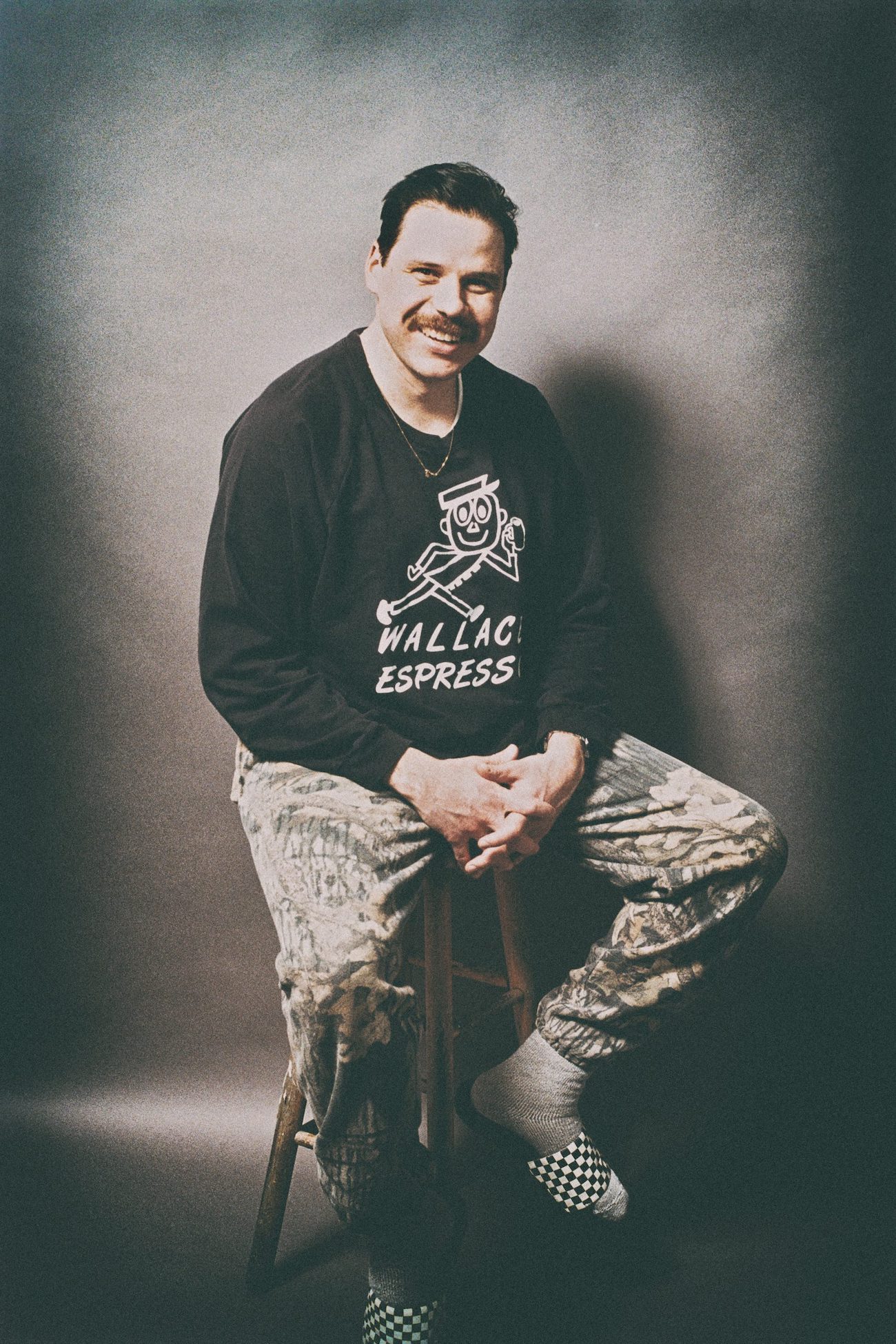
2020 is an interesting landscape to say the least. What are your plans from here with the record and beyond?
Bahamas: Well, I have zero plans to tour, which is sort of a new thing. I am not sure I could have ever imagined in a million years that I’d be able to put out an album and not go on tour. Of course, I miss my band and crew, and I miss traveling and performing. But I’m trying to focus on the bright side, which is getting to be at home with my kids and make them breakfast every day. And I’ve actually gotten to spend more time with them in the last six months than I have for the past several years. Personally, that’s been a wonderful thing and I try to be grateful for that.
On the other hand, I’ve started just like embrace the video portion. I’ve also been working on a musical show, and I have this other sort of comedic show that we’re doing for YouTube. I’m certainly not bored. I’m working on music I figure if I’m not going to tour I may as well make another album right?
I certainly have plenty to do during the day. I have two daughters and they keep me pretty busy. We’re just about to get to fishing season here too. I live in Nova Scotia on the east coast of Canada and we’re about to get a big hurricane come through today and it brought a hundred mils of rains. I’m quite excited to just get out there and literally start looking for fish.
I know that I know it’s been really difficult on some. And in some ways, I’m kind of fortunate that I can be at home right now and be with my kids and work at the same time. I can still come up with ideas and make songs and make recordings and make videos and there’s still a lot I can do. So I’m grateful for that. And I’m just trying to make the most of it until we figure out a way out of this thing.
Down in the US, a lot of us are still in quarantine. What are three Bahamas songs that would do well on a quarantine playlist?
Bahamas: I think the first one is “Own Alone.” It has a real, obviously, bounce to it. It’ll get it, it’ll get you up off the couch. Then “Half Your Love.” Personally, I was so proud of that. It’s a love song of the highest order, and there’s nothing ironic about it. It’s really earnest. So I think if you needed something hones in these troubled times, that would be a good song for that. And finally, “Not Cool Anymore.” That one’s about accepting where you’re at in life. Don’t try to be anything you’re not. I think everybody just wants to feel comfortable in their own skin. And sometimes that’s the hardest thing to do. So, that song is just a message of positivity about accepting yourself and your flaws the way you are.
When [my wife and I] got married, one of my friends wrote this beautiful thing in a card for us that I’ve always remembered. She said, “Be strong like the oak and bend like the willow.” I know that probably sounds cheesy, but I do think that that’s pretty poignant messaging. We all apply a little bit of that in our personal lives, in our politics, in our day to day life. I do think that would make for a better place.
:: stream/purchase Sad Hunk here ::
— —
— — — —

Connect to Bahamas on
Facebook, Twitter, Instagram
Discover new music on Atwood Magazine
? © Dave Gillespie
:: Stream Bahamas ::

